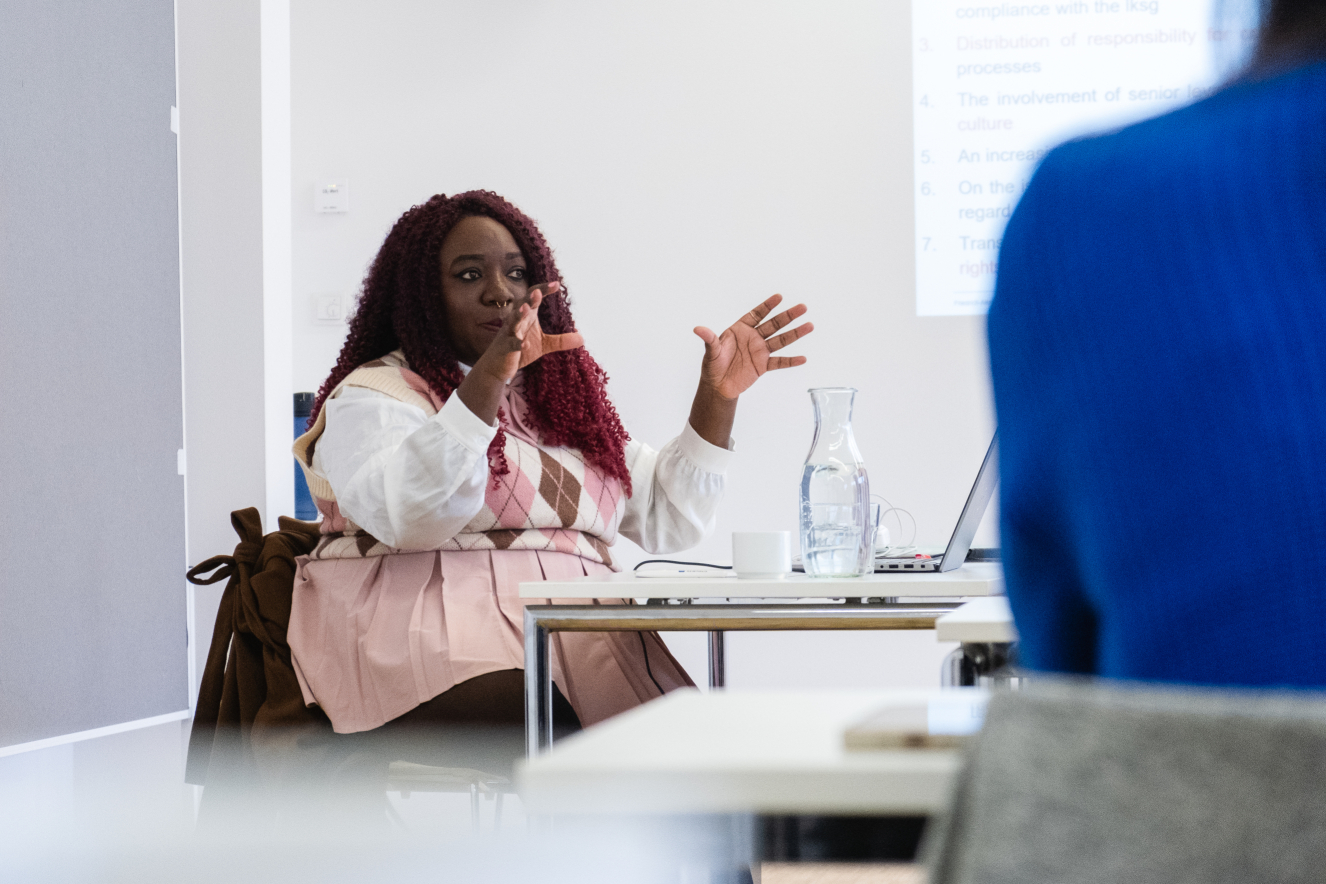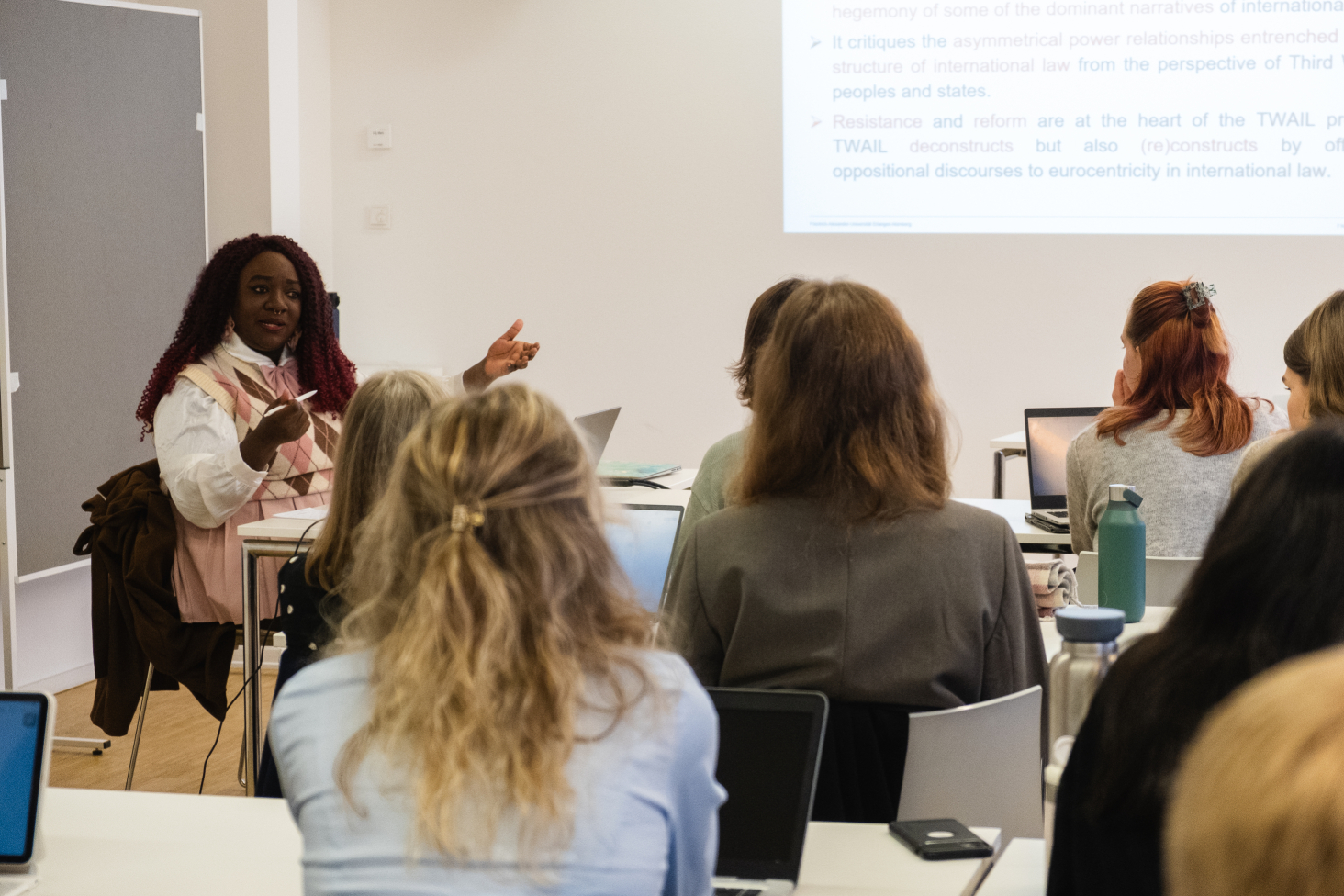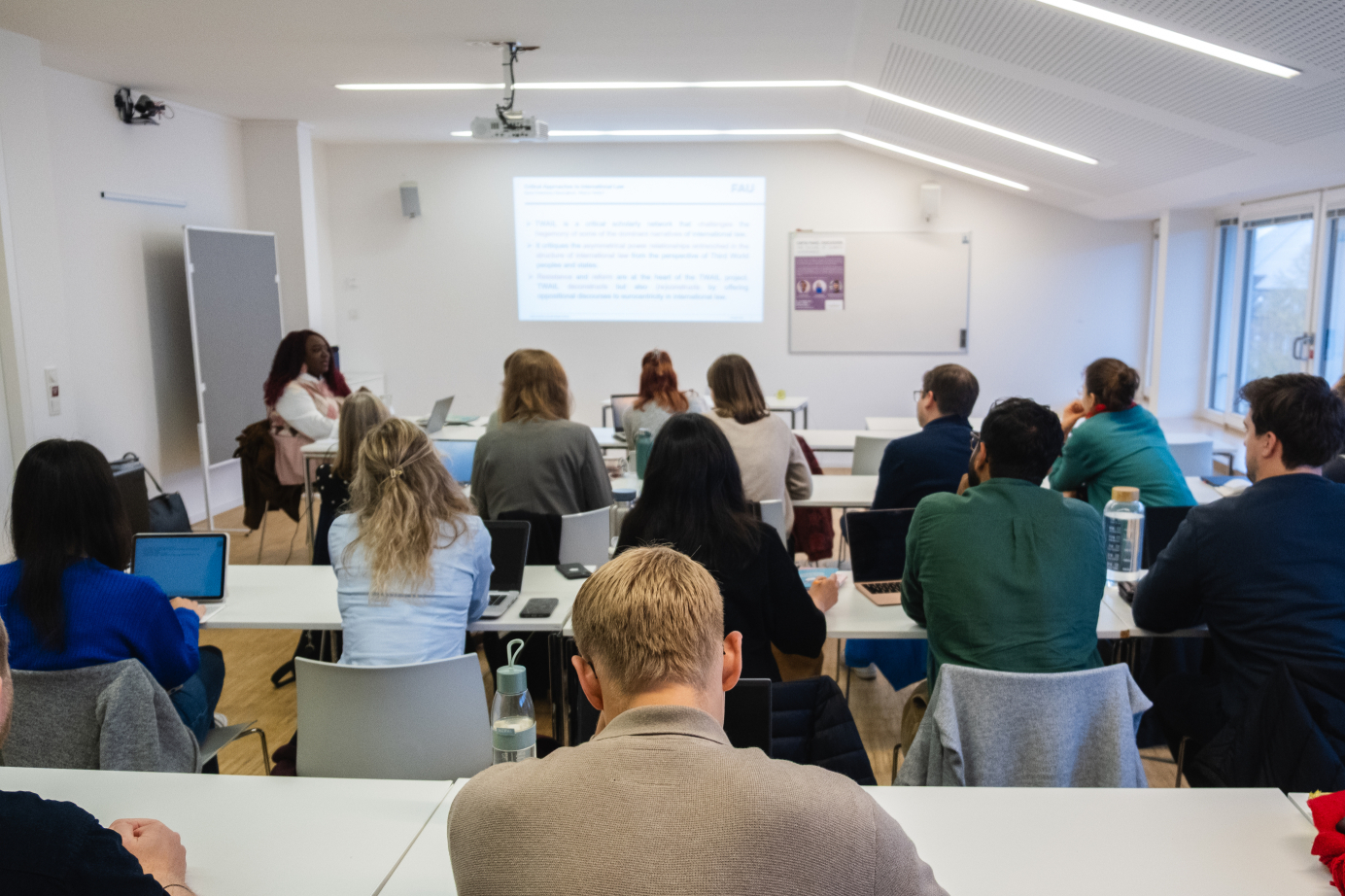
Critical Perspectives and Academic Pathways: Workshop with Dr. Caroline Lichuma
On October 16, Dr. Caroline Lichuma (CHREN) led a workshop on critical perspectives in international law and academic career paths in Germany.
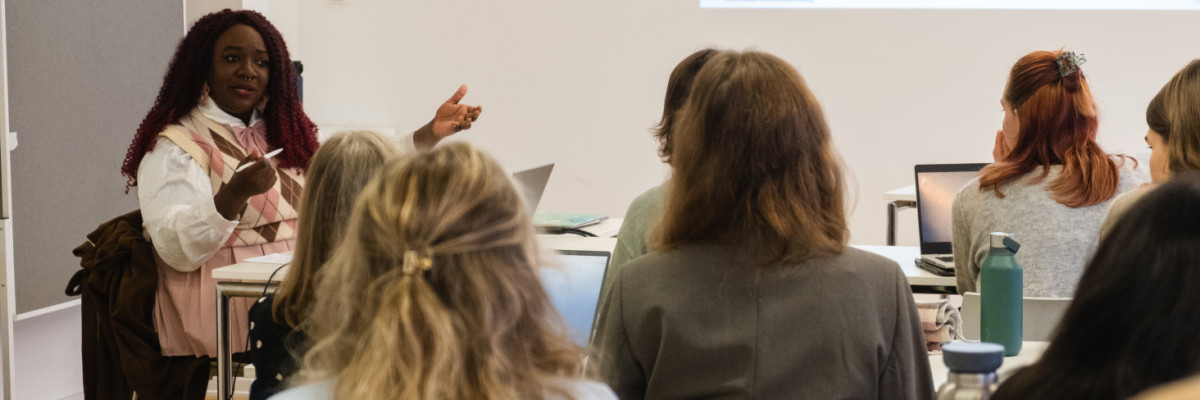
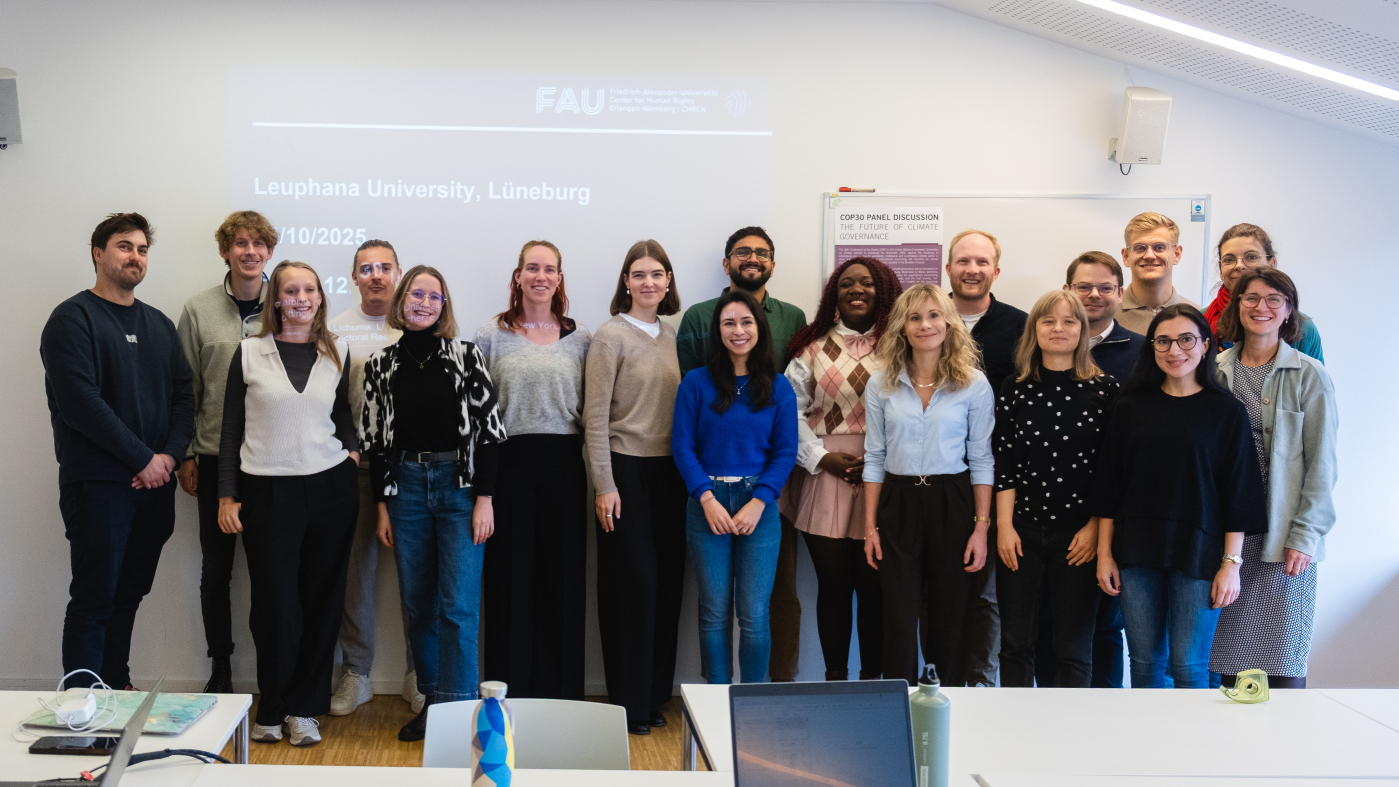
On October 16, we had the pleasure of hosting Dr. Caroline Lichuma, Postdoctoral Researcher at the Centre for Human Rights Erlangen-Nürnberg (CHREN), for a workshop that combined critical legal perspectives, practical research insights, and an open discussion about building an academic career in Germany. Over the morning, Caroline invited participants to look at international law—and at the German Lieferkettengesetz (Supply Chain Act)—through a lens that highlighted both critique and practical implications.
The workshop was organized as a collaboration between the Joachim Herz Doctoral School of Law and the research cluster Go-Chains, bringing together an interdisciplinary cohort of doctoral students to reflect on critical perspectives, discuss challenges in academia, and explore the implications of global value chain regulations together.
The workshop began with critical approaches to international law, which Caroline described as a “common project of critique.” Rather than taking law at face value, critical scholars ask whose interests it serves, what hierarchies it reproduces, and how it might be reimagined to produce fairer outcomes. This reminds us that supply chain norms are not neutral—they are shaped and enforced within specific political and economic contexts. She introduced Third World Approaches to International Law (TWAIL), which foreground perspectives from the Global South and challenge Eurocentric assumptions. TWAIL, Caroline emphasized, is about questioning dominant narratives while also imagining alternatives that center justice and equity.
Caroline then presented her research on the Lieferkettengesetz: Drawing on Karl Weick’s sensemaking and Sally Engle Merry’s vernacularization, she analyzed how companies translate abstract due-diligence norms into everyday routines. Her analysis highlighted a common tension: well-intentioned regulations can become “feel-good laws” if firms focus on compliance narratives rather than real change. She also questioned the limits of regulating global supply chains through national laws, raising the broader issue of responsibility in a borderless economy.
The workshop was particularly valuable for the attending PhD researchers. Caroline shared reflections on navigating the German academic landscape and offered practical tips on publishing, collaboration, and maintaining a research profile across disciplines. She encouraged participants to cultivate curiosity, maintain a critical voice, and seek supportive networks.
Caroline’s visit was more than a morning of insights. Her openness, encouragement, and personal engagement made a strong impression on all participants, showing the value of mentorship alongside scholarship. Engaging with her reminded us that curiosity, persistence, and critical thinking matter not just for research but for building a career, and that guidance and encouragement from experienced researchers can make a real difference for early-career scholars.
More information about our guest speaker
Caroline is a Postdoctoral Researcher at the Centre for Human Rights Erlangen Nuremberg (CHREN). Her current research critically analyzes regulatory developments in Business and Human Rights. She received her PhD in International Human Rights Law (Summa cum laude) from the Georg-August University of Göttingen in Germany, her LLM in Public International from the New York University and her LLB from the University of Nairobi. Caroline is a co-rapporteur of the International Law Association's Business and Human Rights Committee and She co-edits the Business and Human Rights Journal blog.
Text & Photos: Christopher Venzky-Stalling
Wann & Wo
Leuphana University Lüneburg

